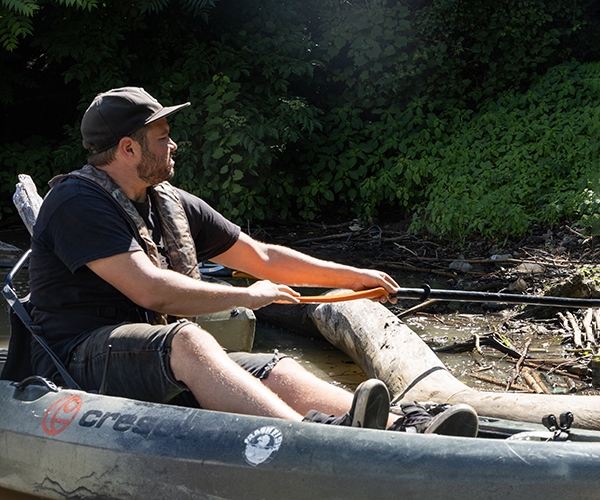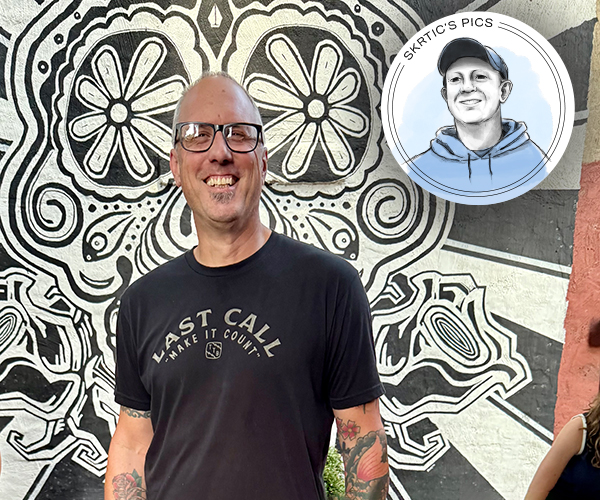Damien Forshe encountered some pretty disgusting pests while working as an exterminator for the Cuyahoga Metropolitan Housing Authority. But he says one of the things that bothered him most was opening the cupboards where children lived and seeing only packs of ramen noodles and junk food. "There was no healthy food to give children to help their immune systems fight off bacteria," Forshe recalls. Prevalent roach allergens often exacerbated matters, causing asthma and bronchitis. After 15 years of thinking about how to solve the problem by talking to those affected, Forshe founded Rid-All Green Partnership with boyhood friends from the Lee-Miles neighborhood. Today, the urban farming business is selling farm-raised fish and produce, helping revitalize what had been a fresh-food desert near East 81st Street and Kinsman Avenue and serving as an inspiration for others who want to do the same.
So, urban-farming innovator Will Allen invited you to Milwaukee to see his place. Was that the point this all clicked for you?
The first time I met him in Milwaukee, it was the coldest I had ever been. He was farming in the wintertime and it was 20 below, but it was warm in the greenhouses. And there was no heat source except for the compost hot mix. It was fascinating how you could heat up a greenhouse with only wood chips, coffee grinds and beer hops. And I was blown away by the fish farming. He had tens of thousands of tilapia, perch, bluegill and bass. But most amazing was how many people he was helping in the housing authority. Our stories just sounded so similar. It made sense to me. I wanted to be a part of it.
So you came home and started a 1.3-acre farm in what's known as the "Forgotten Triangle." Why there?
Everybody thought it was insane to start a farm in an area that nobody even wanted to drive down, but we weren't afraid of that area because it was our community. My family actually had a deli down there, and I had cousins that lived down there. It was a blessing to be able to revitalize an area that's been forgotten for 30, 40 years.
What do you grow?
We grow tomatoes, lettuce, cucumbers ... even an orange tree and moringa trees — one of the most vitamin-rich trees on earth. We have tilapia you can come right up to buy.
The city of Philadelphia has noticed a decrease in crime near its urban farms. Have you seen the same?
I've seen a tremendous turnaround. They used to say the population went up at night here, because of all the illegal activity, like breaking into houses and stealing sewer tops to scrap. Now it's the reverse. Kids have started coming to play in the park and inquire about what we do. Residents just pull up and tell us to just keep doing what we're doing.
What are you doing differently that you've been able to impart on others?
Our approach is totally different. We use a lot of different cultural approaches to educate. We have a clothing line, comic books, and we did an educational play at the Karamu House in January 2012. It brought in 200 to 300 kids from public housing. We learned you can't just sell vegetables if you're going to change a community.



